Oppo A54 5G


The Oppo A54 5G is another example of a new breed of affordable phone that offers 5G connectivity and stellar battery life at an extremely low price. As ever, however, you really need to read the small print before you decide whether the inevitable trade-offs are acceptable to you.
Pros
- 5G connectivity on a budget
- Excellent stamina from 5000mAh battery
- Ultra-wide camera included
Cons
- So-so performance
- Camera poor in low light
- Meagre 10W charging
Availability
- UKRRP: £199
- Europeunavailable
- Canadaunavailable
- Australiaunavailable
Key Features
- 5GThis offers 5G network support on a budget
- BatteryBig cell for strong endurance
Introduction
An intriguing new mini-trend has emerged within the budget smartphone market in mid-2021. Phones like the Oppo A54 5G, the Realme 8 5G, and the Redmi Note 10 5G are all offering 5G connectivity at around the £200 mark.
That’s cheaper than it’s ever been to get connected to broadband-like data speeds. The question I ask with each of these phones, though, is: at what cost? With a host of hardware compromises over similarly priced 4G phones, you have to really want that 5G functionality for this approach to make any sense.
Oppo, of course, has had a productive year further up the smartphone table with its Oppo Find X3 family. So can it work some of that same magic and make the Oppo A54 5G a fully rounded budget contender?
Design and Screen
- Sturdy and durable all-plastic body
- Decent side-mounted fingerprint sensor
- Reasonably colourful 6.5-inch 90Hz LCD
Oppo has gone with a pretty basic design for the Oppo A54 5G. It’s very similar to the bare bones Realme 8 5G, except for a marginally more interesting, color-shifting finish. My handset came in Fluid Black, which partially takes on the surround tone wherever it catches the light.
Together with a particularly bland camera module, however, it’s nowhere near as appealing or premium-feeling as the Redmi Note 10 5G. Its shiny plastic rear material attracts greasy prints like nobody’s business, too.
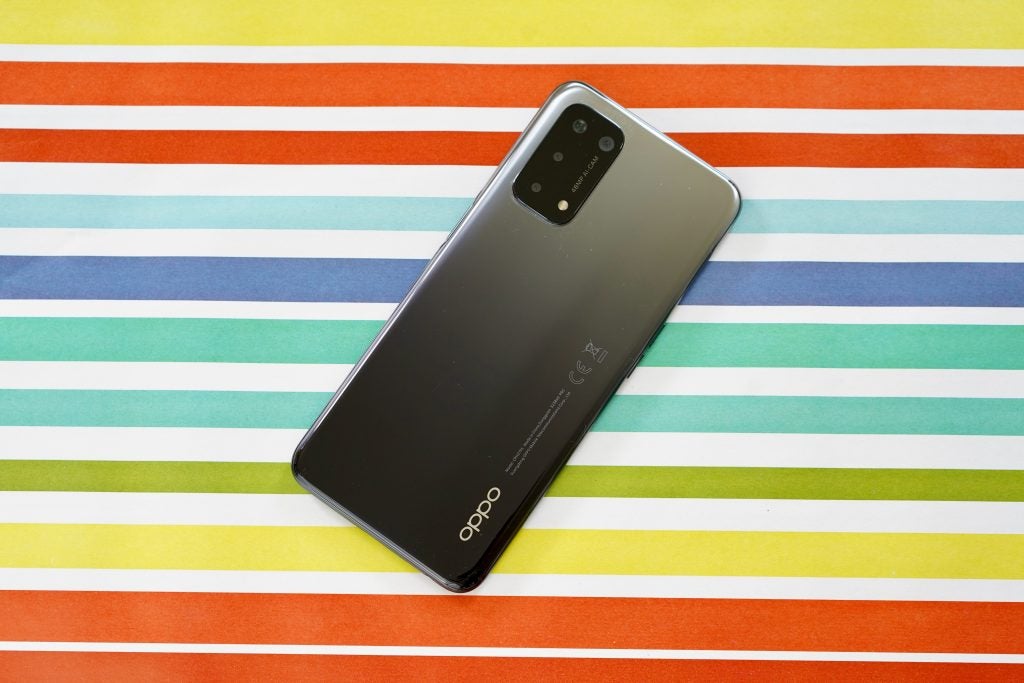
At 162.9 x 74.7 x 8.4mm, this is the very definition of a regular-sized phone. It’s pretty chunky for a budget phone at 190g, which matches the Redmi Note 10 5G and tops the 185g Realme 8 5G.
The right edge of the Oppo contains a fingerprint sensor, which is pleasingly recessed for easy access. Also helping you find the sensor is the fact that the volume keys are on the opposite edge, unlike with the Redmi Note 10 5G. The sensor itself is a reasonably speedy and agreeably reliable example of the format, and I didn’t have any real frustrations gaining access to the phone.
The bottom edge of the phone contains a 3.5mm headphone jack, which is pretty normal for a budget phone. As is the presence of a single speaker, which is somewhat tinny but gets very loud. Of course, you can get full stereo sound for the same money if you’re willing to forgo 5G.
Spoiler alert: that’s going to be a running theme throughout this review.
The Oppo A54 5G offers a very similar display to the Realme 8 5G. Indeed, given that Oppo and Realme are owned by the same parent company, I wouldn’t be surprised if it’s exactly the same component.
As such, you’re getting a 6.5-inch 2400 x 1080 IPS LCD with a 90Hz refresh rate. This is the first point of compromise, as you can typically either get a more vibrant OLED panel (the Realme 8) or a more fluid 120Hz LCD (the Poco X3 NFC) at the same price if you’re willing to forego 5G.
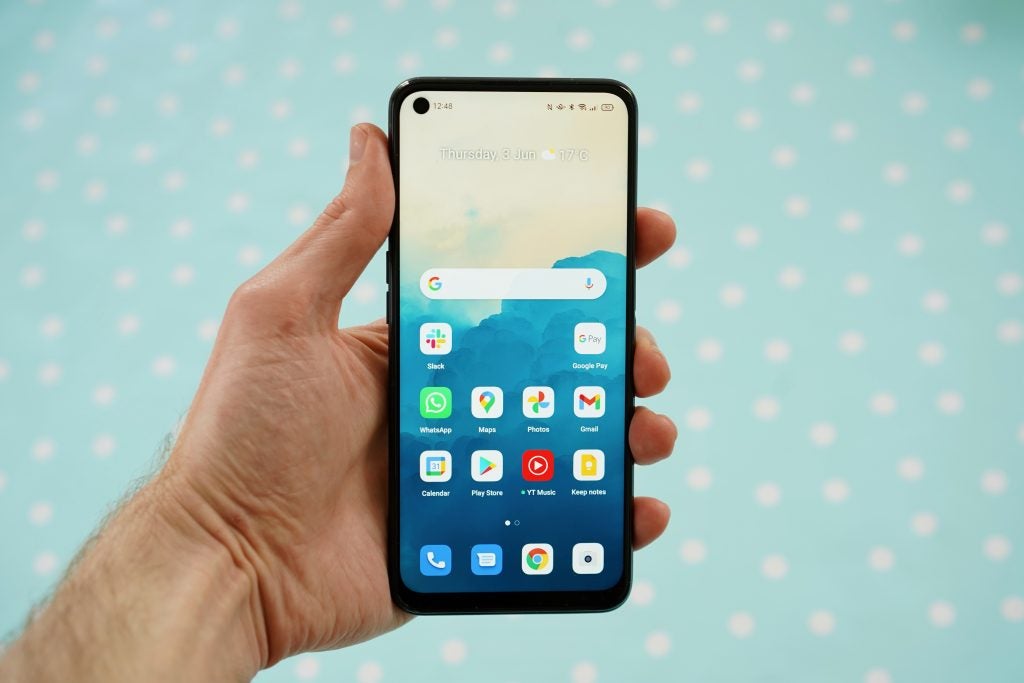
With a typical brightness of 480 nits (the same as the Realme 8 5G), the Oppo A54 5G’s screen gets a little brighter than the gloomy Redmi Note 10 5G, though Oppo’s auto brightness system continues to be a little too aggressive for my taste. Still, its colours are a lot more vibrant than the Redmi’s, and seem less prone to washing out further when you tilt it off-axis.
Camera
- 48MP main sensor good in bright conditions, but bad in low-light
- 8MP ultra-wide lifts it above the competition
- 16MP selfie cam OK, but smudges skin tones
The Oppo A54 5G features a 48MP wide camera sensor, which is the same spec as its two budget 5G rivals. However, it has a marginally wider f/1.7 aperture.
Sure enough, in daylight conditions, the Oppo A54 5G captures very bright and reasonably detailed shots, with a tad less oversharpening than the Redmi Note 10 5G. On one particularly sunny day, the Oppo dealt with the extreme brightness of the sun when shooting some cows in a field better than its Xiaomi-bred rival – albeit with the odd dose of overexposure.
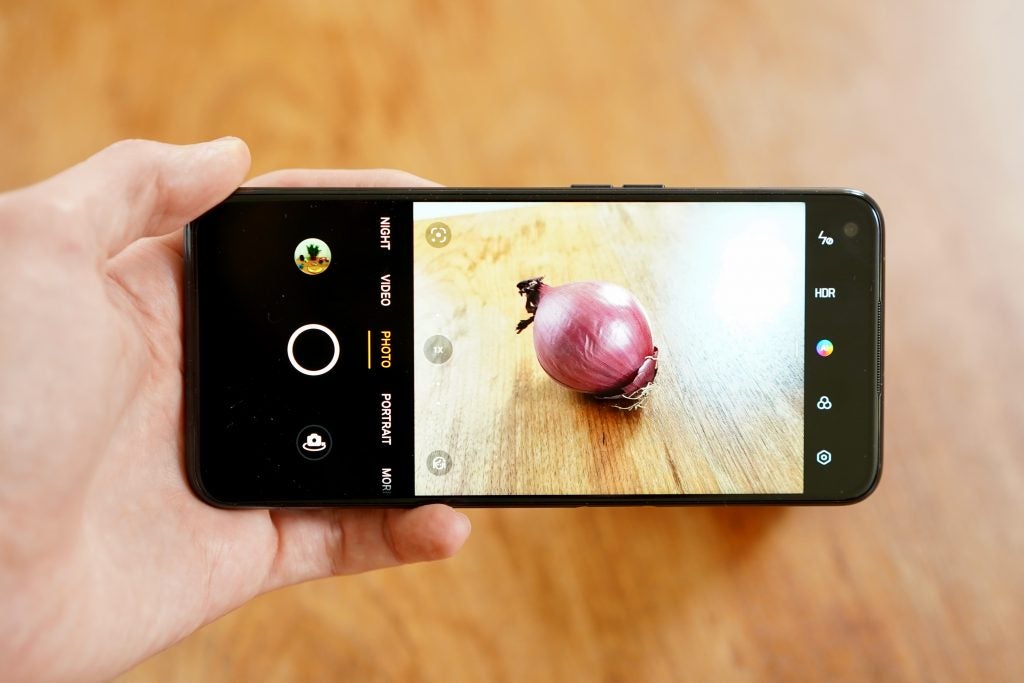
You also get something that neither the Redmi Note 10 5G nor the Realme 8 5G provide – an ultra-wide sensor. It’s no great shakes of course, at a mere 8MP and f/2.2. There’s a marked drop-off in detail and dynamic range compared to the main sensor, but it’s far from a total write-off, and I’m glad Oppo included it.

Unsurprisingly, there’s no dedicated telephoto. Oppo does achieve usable 2x results by cropping in on that high-pixel-count sensor, but I wouldn’t advise pushing further to 5x. The results aren’t pretty.

Both the Redmi Note 10 5G and the Realme 8 5G took better shots in lesser lighting than the Oppo A54 5G, both with and without the use of Night mode. In low ambient lighting conditions the Oppo captured less detail and didn’t always seem to focus so well on subjects, while in darker night time conditions the Oppo A54 5G tended to produce a bagful of grain.

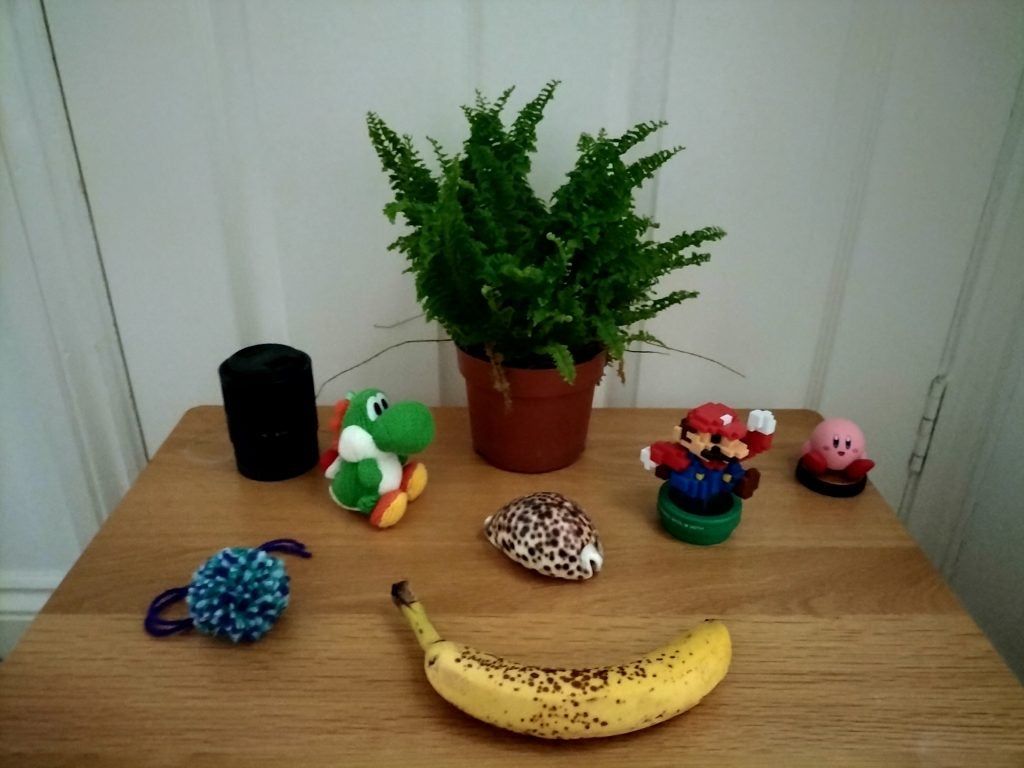
Macro shots turned out marginally better than on the Redmi Note 10 5G, but they still looked awful. With a mere 2MP sensor, it simply lacks the fine detail needed for shots that demand, well, fine detail.
Oppo’s Portrait mode algorithm is reasonably adept at isolating the subject, and I only lost the very edges of my hat to the artificially imposed bokeh. But the blurry background looks a little fake.

On the video front, you only get support for 1080p at 30fps. This is the same as the Oppo’s budget 5G rivals, but that doesn’t make it any more impressive. Not when you can easily get a similarly priced 4G phone (take your pick) that’s capable of 4K or 1080p/120fps.
The Oppo A54 5G’s 16MP selfie cam is a match for the Realme 8 5G’s, and packs in more pixels than the 8MP Redmi Note 10 5G equivalent. But it still smudges skin tones and struggles with bright areas.

Performance
- Snapdragon 480 5G roughly as capable as rivals
- 4GB RAM and 64GB storage seems stingy
- ColorOS 11.1 clean, simple, and relatively bloat-free
The Oppo A54 5G is powered by a Snapdragon 480 5G SoC. This is a considerably more mainstream choice than the MediaTek Dimensity 700 5G chip adopted by the Realme 8 5G and the Redmi Note 10 5G, but also a marginally slower one in certain ways.
While the Realme 8 5G scored 1749 and the Redmi Note 10 5G scored 1677 in my Geekbench 5 multicore tests, the Oppo A54 5G could only manage 1578. That’s a CPU-focused test.
The Oppo A54 5G attains something like parity when it comes to the GPU tests, which is an area where the Dimensity 700 chip isn’t quite so commanding. In 3DMark’s snappy one-minute Wildlife and Wildlife Extreme tests, the Oppo fell around 10 to 15% behind the Realme 8 5G. But in the more prolonged Wildlife Extreme test, it scored 2417 to the Realme’s 2308.
In other words, the Oppo A54 5G is likely to perform a little better than its budget rivals when playing high-end 3D games for extended periods. Think PUBG Mobile and Genshin Impact.
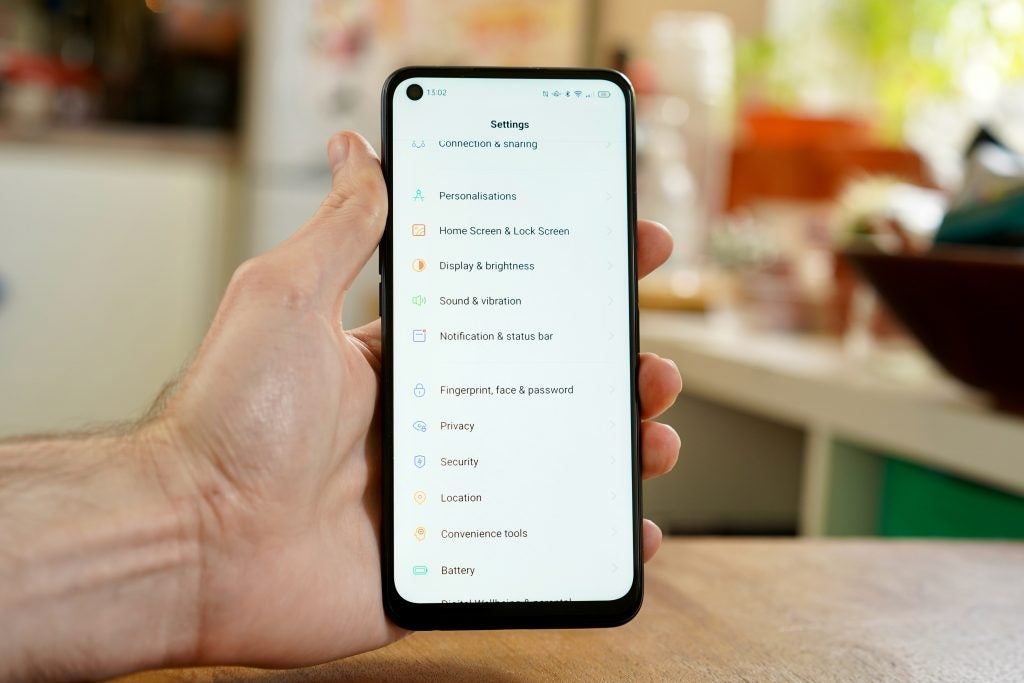
In practical terms, booting up PUBG Mobile yielded mid-level presets of HD graphics and High Frame Rate, just like those aforementioned rivals. Jumping into a game, it hit the same kind of 30fps frame rate in the lobby, with the odd dip down to 28 or 29.
The Oppo A54 5G’s processor is backed by 4GB of RAM, which isn’t much even for a budget phone. While it matches the Redmi Note 10 5G, the Realme 8 5G offers either 6GB or 8GB, as does the non-5G Poco X3 NFC.
One other specification that feels like a bit of a compromise here is the amount of storage that’s available. 64GB might seem ample if you haven’t checked into this end of the market recently, but the truth is 128GB has quickly become the new normal. Even for the price, the Oppo A54 5G’s allotment feels a little stingy.
General navigation is reasonably smooth regardless. As with the Oppo A54 5G’s rivals, apps can take a little long to boot up, though of course that’s only really noticeable if you’re coming from a more capable phone.
In software terms, the Oppo A54 5G runs on ColorOS 11.1 layered over Android 11. That’s the same basic set-up as you’ll find in the premium Oppo Find X3 family.
While I still wouldn’t call ColorOS my favourite Android skin, it’s undeniably clean and functional. There’s no app tray by default, which keeps things simple and rather iOS-like in its total focus on the home screen.
It’s a shame to see Google Feed jettisoned from its position to the left of the home screen, though. Still, there’s no dodgy widget screen in its place as with certain rival UIs, so I can appreciate the attempt at restraint at least.
Bloatware is fairly minimal too, with just a regular roster of basic tools and apps (Music, File Manager, Weather etc.) to contend with. Facebook is the only third party app to come preinstalled on the phone.
Battery Life
- Big 5000mAh battery
- Can manage two days of light to moderate use
- 10W charger one of the least impressive in its class
The Oppo A54 5G runs off a 5000 mAh battery, which can be considered large when taking in the smartphone field as a whole. It’s exactly the same size as its budget 5G rivals listed above, however.
There’s a very good reason for this shared spec. Many an early 5G phone has run afoul of 5G’s thirsty nature, powering down well before the day is done. Until 5G modems get more efficient, brute force seems to be the safest bet in securing better stamina.
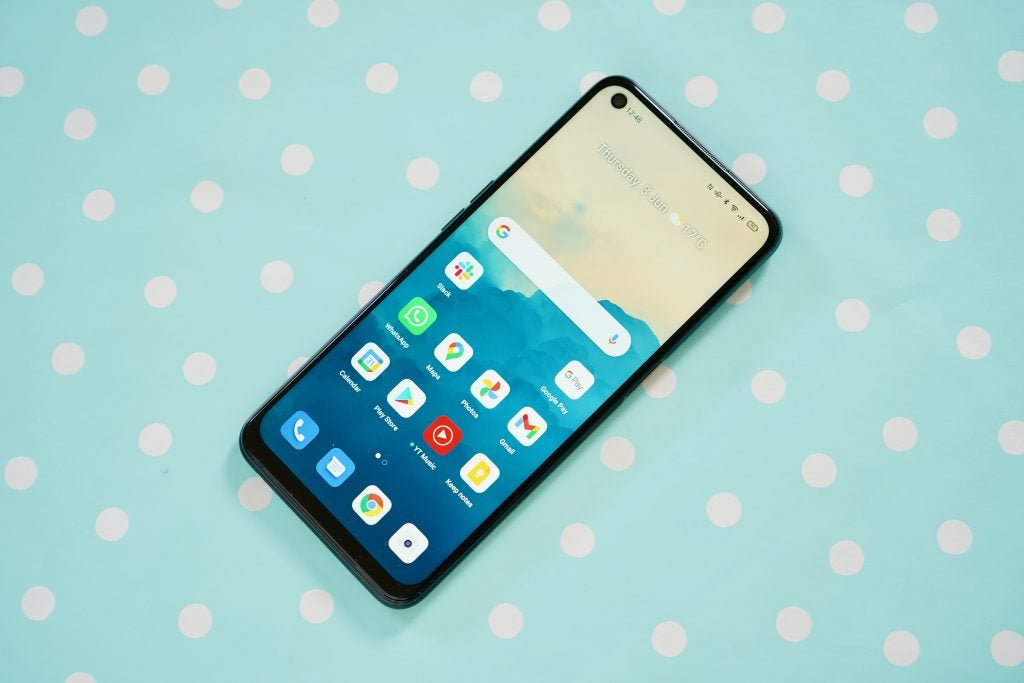
You can say more or less the exact same thing about the Oppo A54 5G’s battery as you can the Redmi Note 10 5G’s and the Realme 8 5G’s. It’ll clear a full day of usage with ease, even with an excess of screen-on time, and will likely stretch through a second day under moderate conditions.
On a particularly light 15 hour day with just 2 hours 20 minutes of screen on time, we were left with more than 70% left in the tank. Days with more regular usage would drain closer to 50%. This is all comparable with its rivals, but it remains impressive within a wider smartphone context.
When it comes to media consumption, the Oppo A54 5G lost about 9% of its juice after an hour of Netflix streaming and 2% after an hour of YouTube Music streaming, which is a single percentage point worse than the Realme 8 5G in both cases. Allowing a certain margin for error, we can probably call that a draw.
30 minutes of PUBG, meanwhile, sapped just 6% of a charge. That’s about half what a mid-range or flagship phone would consume, though of course such phones will be running
high-end games with much more demanding graphical settings, frame rates, and resolutions.
The phone falls behind its direct rivals on the charging front, however. Whereas both the Realme 8 5G and the Redmi Note 10 5G pack 18W chargers (itself a step back from similarly priced 4G phones), the Oppo A54 5G only includes a mere 10W charger.
This means that charging from 0 to 50% takes just over an hour. That’s really not very fast at all.
Best Offers
Should you buy it?
5G at a sub-£200 price tag means everything to you This is another affordable phone with 5G support, so if this is a key feature for you then this remains a decent choice
You value performance above all else This is far from a speedy phone and not a good choice if you’re a big mobile gamer
Final Thoughts
The Oppo A54 5G gives you 5G connectivity and exemplary stamina for less than £200. If those are your main criteria for a new smartphone, this is a solid option that sits right alongside the Realme 8 5G and the Redmi Note 10 5G. But there are fundamental compromises to the display, camera, performance, and basic specification that you simply don’t have to make to the same degree with the 4G alternatives.
FAQs
The Oppo A54 5G only comes with 4GB of RAM
There is no official IP rating
Android 11 with ColorOS 11.1 on top
Trusted Reviews Test Data
Specs
The post Oppo A54 5G appeared first on Trusted Reviews.
Source Trusted Reviews ,Home Appliances Reviews

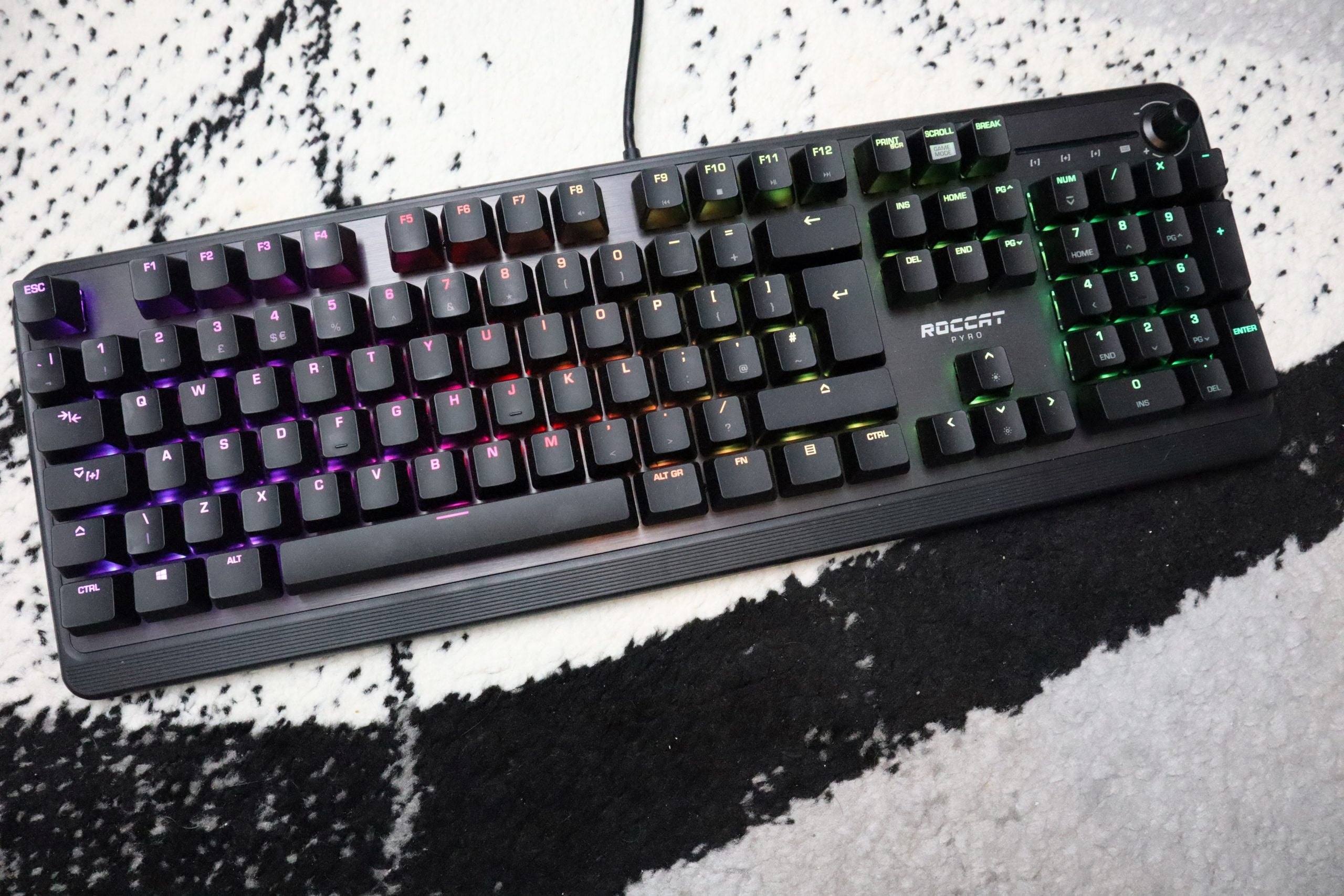

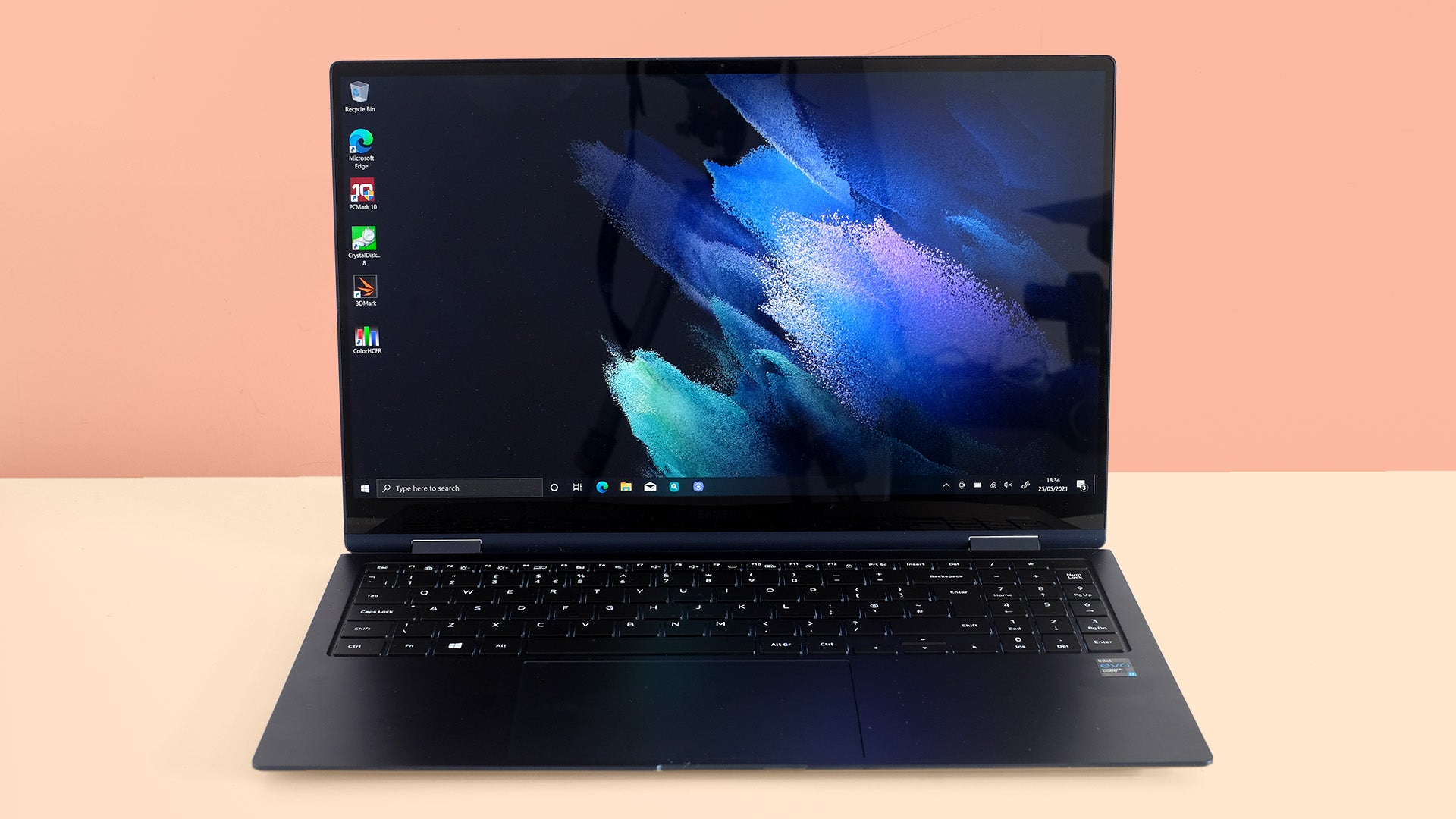

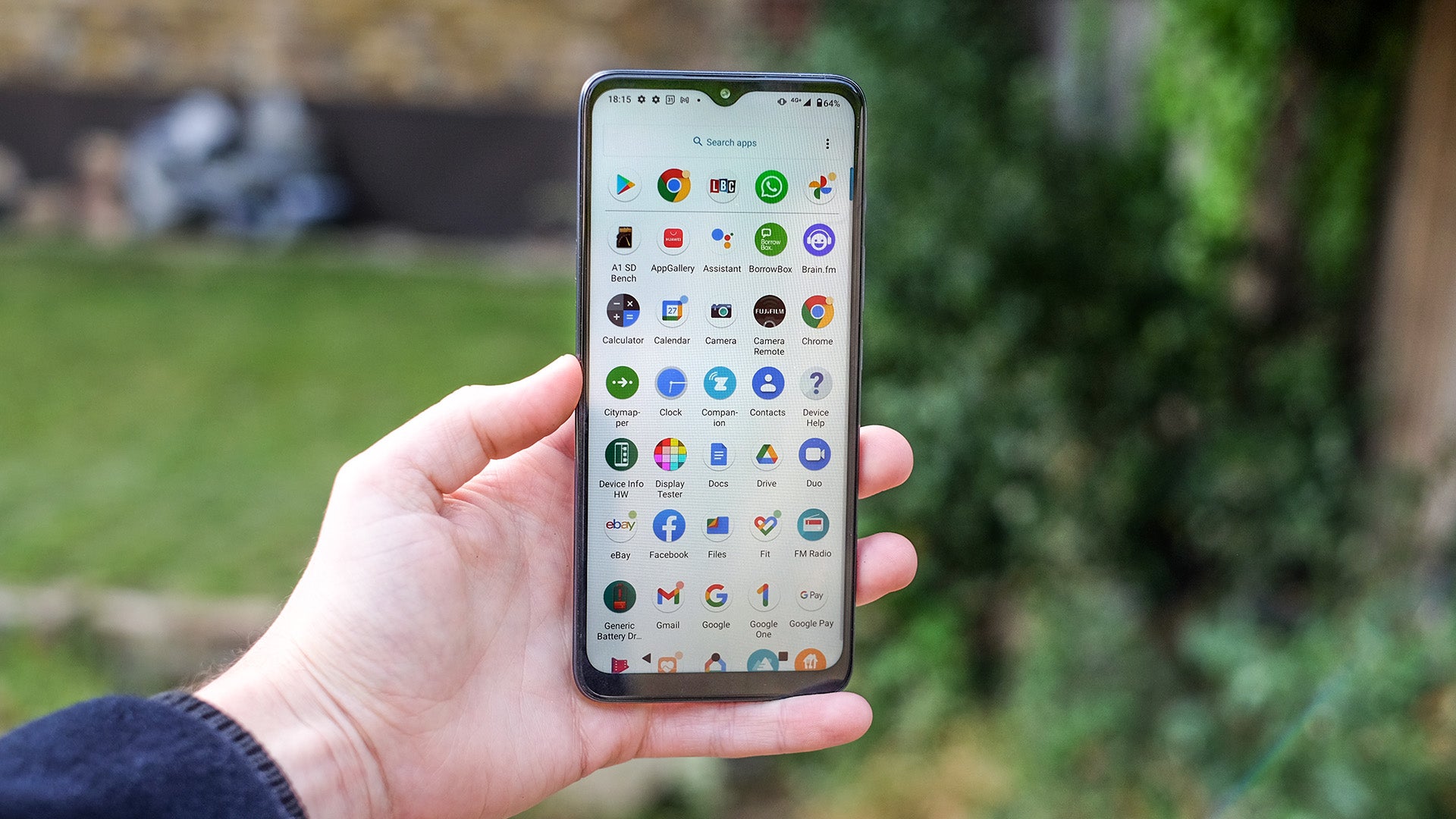
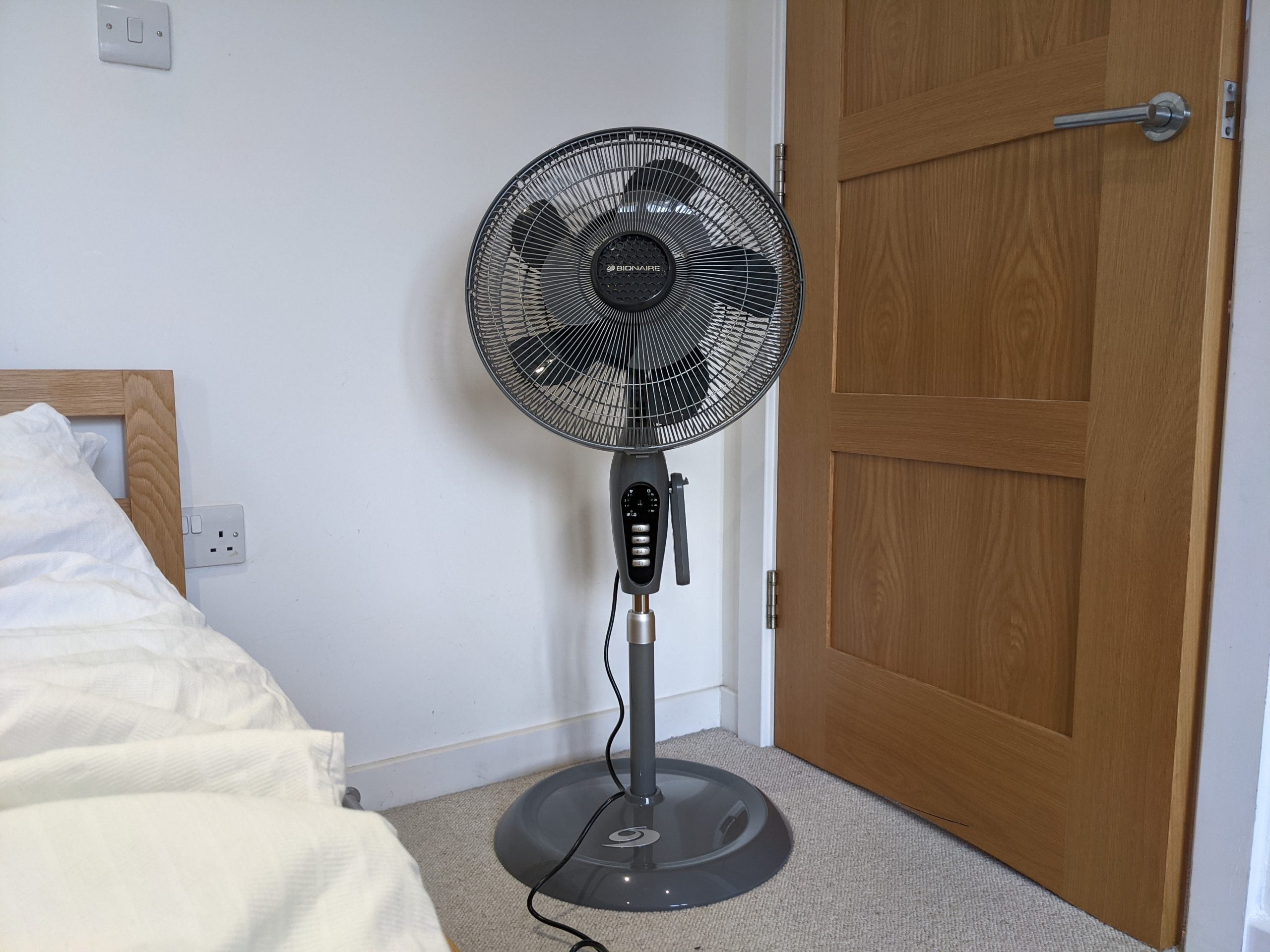
No comments